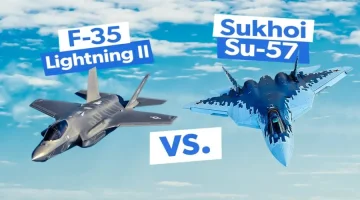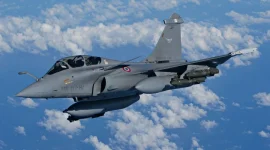- Views: 4K
- Replies: 40
As India continues its ambitious defence modernization drive, the potential acquisition of Russia's Tu-160M "White Swan" strategic bombers has emerged as a topic of considerable debate. These formidable aircraft, with their impressive range and payload capacity, could significantly enhance the Indian Air Force's (IAF) strategic deterrence and power projection capabilities. However, this potential acquisition presents a complex set of opportunities and challenges for India.
The Tu-160M, a modernized version of the supersonic Tu-160 bomber, is capable of carrying a wide range of advanced cruise missiles and nuclear warheads, allowing it to strike strategic targets at vast distances. This capability would undoubtedly be a significant addition to the IAF's arsenal, enhancing its deterrence posture and strategic flexibility. The Tu-160M's recent deployment in the conflict in Ukraine has further demonstrated its effectiveness in modern warfare scenarios.
However, acquiring the Tu-160M would require careful consideration of several factors. Integrating these heavy bombers into the IAF's existing fleet would necessitate significant investment in infrastructure, specialized maintenance facilities, and training programs for aircrews. Additionally, the Tu-160M's nuclear capabilities could necessitate a re-evaluation of India's nuclear deterrence policy and potentially impact its strategic relationships with other nations.
The acquisition could also alter the regional security dynamics, potentially leading to an arms race with neighboring countries. On the other hand, the Tu-160M would significantly enhance India's ability to project power, defend its interests, and maintain regional stability.
Furthermore, the offer comes at a time when India is diversifying its defence partnerships. While Russia has been a long-standing and crucial defence partner, India is increasingly collaborating with countries like the United States, Israel, and France. Acquiring the Tu-160M could impact these evolving relationships.
Ultimately, the decision to acquire the Tu-160M will depend on a careful assessment of India's strategic needs, regional security considerations, and its evolving defence partnerships. While the "White Swan" offers significant capabilities, India must weigh the potential benefits against the complexities and challenges associated with integrating such a powerful strategic asset.


